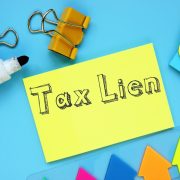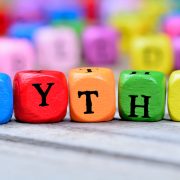Tax Liens and Your Self-Directed IRA: What You Need to Know
Did you know that you can invest in property Tax Liens? Because of the flexibility of your Self-Directed IRA, you have the opportunity to add non-traditional investments to your portfolio. In this guide, we will provide an overview of Tax Liens and what investing in these claims can mean for your portfolio.
What is a Tax Lien?
Put simply, a tax lien is a claim against a homeowner’s property when taxes due are not paid to the government. This claim can be made by any government entity that “charges” taxes, whether it be at the city, county or state level.
When a homeowner is issued a lien, he or she receives a certificate from the government. It’s a bill, of sorts, that will outline the total amount due the government, including tax, penalties and interest.
A lien on a property may make it difficult for a homeowner to receive mortgage credit in the future, so it’s in his or her best interest to pay the debt. If the debt is not paid, however, it can be sold at auction. That’s where tax lien investing enters the picture.
How Do I Invest in Tax Liens?
Tax lien investing within your Self-Directed IRA is similar to investing in property. The notable difference is that with this type of investment you will not own tangible land. You are instead investing in the lien that a local government has placed on an underlying property, which may come with specific rights and claims down the line. Once you understand this distinction, you will see how different it is than traditional real estate investing.
To invest in Tax Liens, you will first need to find claims that are for sale or at auction. The auctioneer will set the criteria for winning the auction, but the sale is usually made to either the highest cash bidder or the bidder with the lowest interest rate. In some cases, an investor may purchase a lien at a set price without the hassle of auction.
Once an investor has won an auction or purchased a lien, he or she is responsible for paying the debt to the government. As the homeowner makes payments on the lien, the investor will collect those payments as well as interest.
Tax Lien Investing: The Risks and Potential Gains
Before you purchase a tax lien with your Self-Directed IRA, it’s important to understand both the risks and the potential gains of such an investment.
No investment is guaranteed to return results. Consider the following before you invest in property Tax Liens:
- The property may be neglected or even condemned, potentially costing you thousands of dollars in repairs.
- The property owner may be unable to pay – or have no intention of paying – their tax.
- Your tax lien purchase isn’t “set it and forget it;” you must hire professionals to oversee the asset.
- Tax Liens do expire. Once this happens, you will be unable to collect any money from the homeowner.
- Foreclosure is a possibility, but if other liens exist on the home, an investor may be unable to gain ownership of the property.
As you can see, there are risks to investing in Tax Liens. However, the potential for financial gains for your Self-Directed IRA are present as well. Speak with your financial advisor to ascertain whether this type of investment is a good fit for your portfolio.
Interested in learning more about Self-Directed IRAs? Contact American IRA, LLC at 866-7500-IRA (472) for a free consultation. Download our free guides or visit us online at www.AmericanIRA.com.






